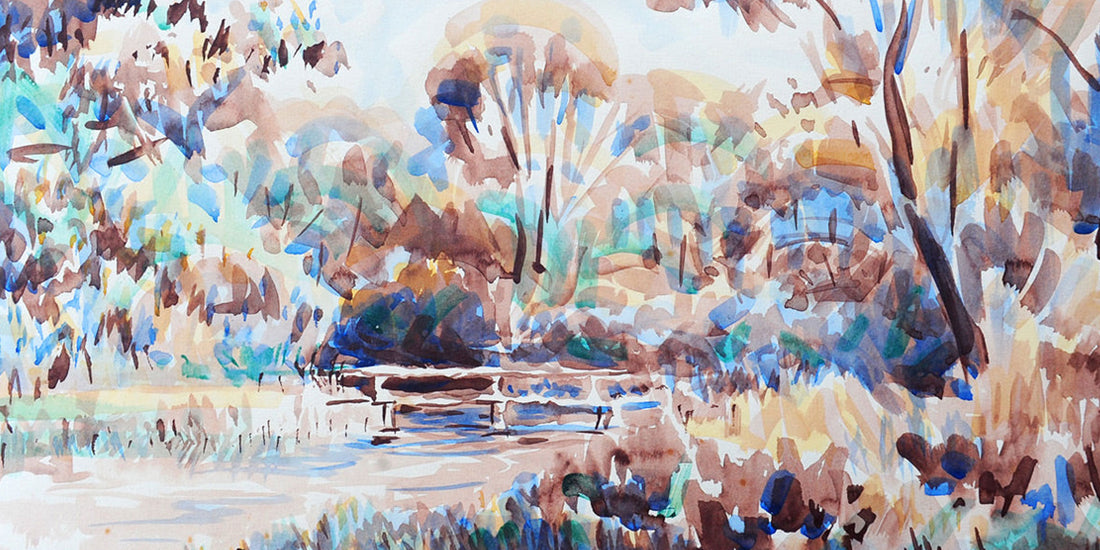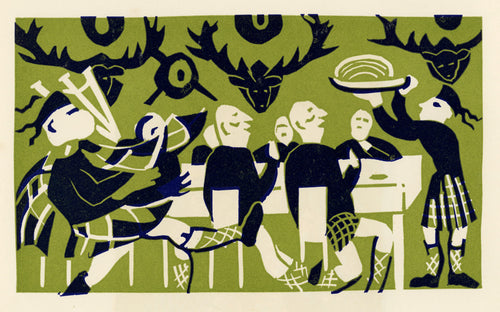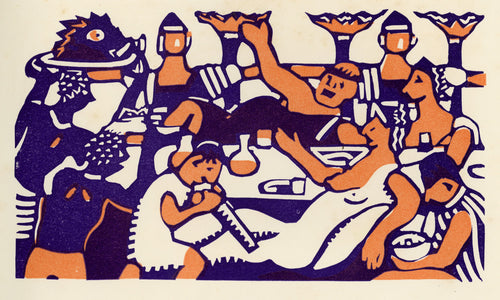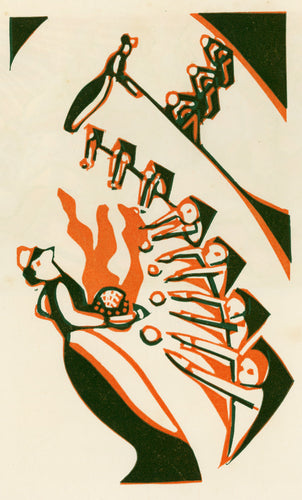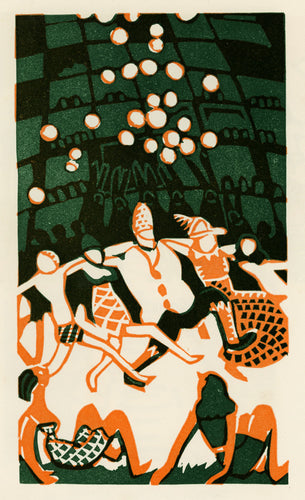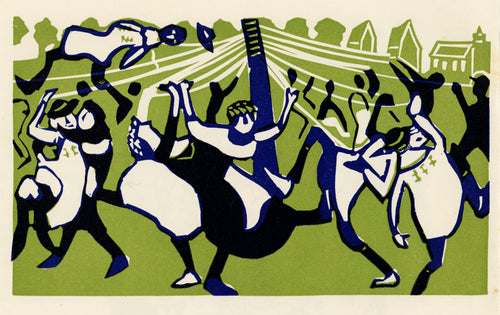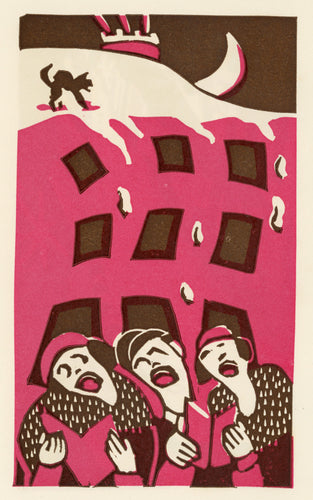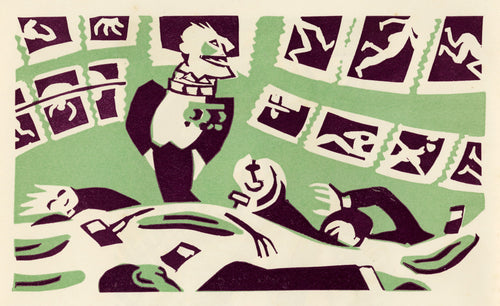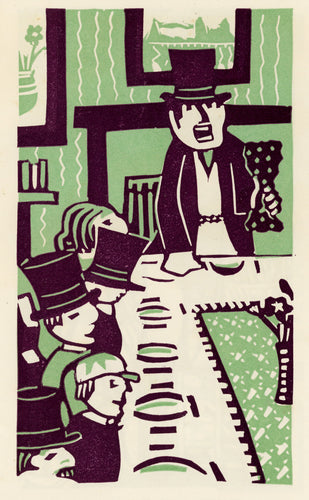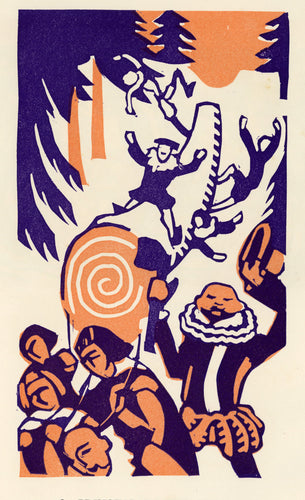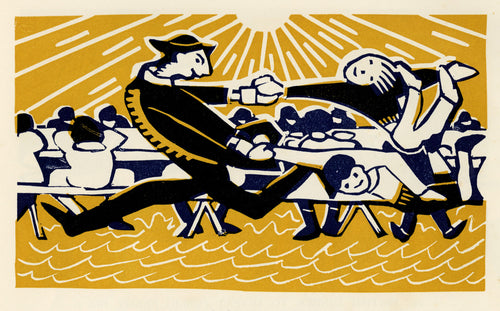Brimming with colour and a hint of the abstract,
Claude Flight and Edith Lawrence’s watercolours were the result of a dynamic artistic rapport.
 'View from the Wood, Winter' - watercolour landscape by Claude Flight and Edith Lawrence
'View from the Wood, Winter' - watercolour landscape by Claude Flight and Edith Lawrence
Born in 1881, Flight led a life as busy as his best-known prints and paintings. Coming to art relatively late in his career after disparate years spent as a librarian, engineer and beekeeper, he helped found the Grosvenor School of Modern Art in 1925 together with fellow artists Ian McNab, Cyril Power and Sybil Andrews.

 (above) 'View Across the Hills'; (below) 'View Across the Valley'
(above) 'View Across the Hills'; (below) 'View Across the Valley'
The Grosvenor School stood as a bastion of artistic learning, exposing its students to innovative printmaking techniques and providing a heavily emphasised 'try it yourself' method of art education. With time, the school specialised in the otherwise little used technique of linocutting, a medium Flight taught and championed and which he advanced more than perhaps any other artist of his time.

 two of Claude Flight's idiosyncratic linocuts: 'A Roman Feast' (above) and 'Nursery Tea' (below)
two of Claude Flight's idiosyncratic linocuts: 'A Roman Feast' (above) and 'Nursery Tea' (below)
Collaboration was also strongly promoted at the School. Resident artists experimented in joint production, as when Power and Andrews adopted the shared moniker of Andrew-Power, and it was here that Flight established a similar relationship with his lifelong partner Edith Lawrence, the pair working closely to develop a common artistic style.

 (above) 'Cloudy Day': (below) and landscape view incorporating bold tones of purple, blue, cyan, and orange
(above) 'Cloudy Day': (below) and landscape view incorporating bold tones of purple, blue, cyan, and orange
The strength of that collaborative spirit can be powerfully felt in these watercolours; so unified is their mode of expression that, except for those images which are individually signed, it is almost impossible to tell the two apart, a testament to the closeness of their bond and the skill of each hand.

 (above) trees are completed with semi-abstract brushstrokes; (below)'Woodland Scene'
(above) trees are completed with semi-abstract brushstrokes; (below)'Woodland Scene'
Further evidence of that skill is to be found in the clarity of their brushstrokes. Watercolour is a difficult medium to work in: with either too much water or too little paint, the image on the page can end up muddied and 'overworked' or pale and anaemic. Here, though, paint is applied confidently and often in broad, single strokes, trees, leaves and fields sometimes being completed in a mere two or three separate movements with the brush.
 some of Flight and Lawrence's compositions are almost abstract arrangements in themselves
some of Flight and Lawrence's compositions are almost abstract arrangements in themselves
The resulting compositions gain an abstract, patchwork effect, each image built up with areas of almost uniform, translucent colour. Though more serene than their many linocut prints, much of what typifies those designs – their bold sureness of line, colourful vitality and subtle abstraction – can be found here in abundance.
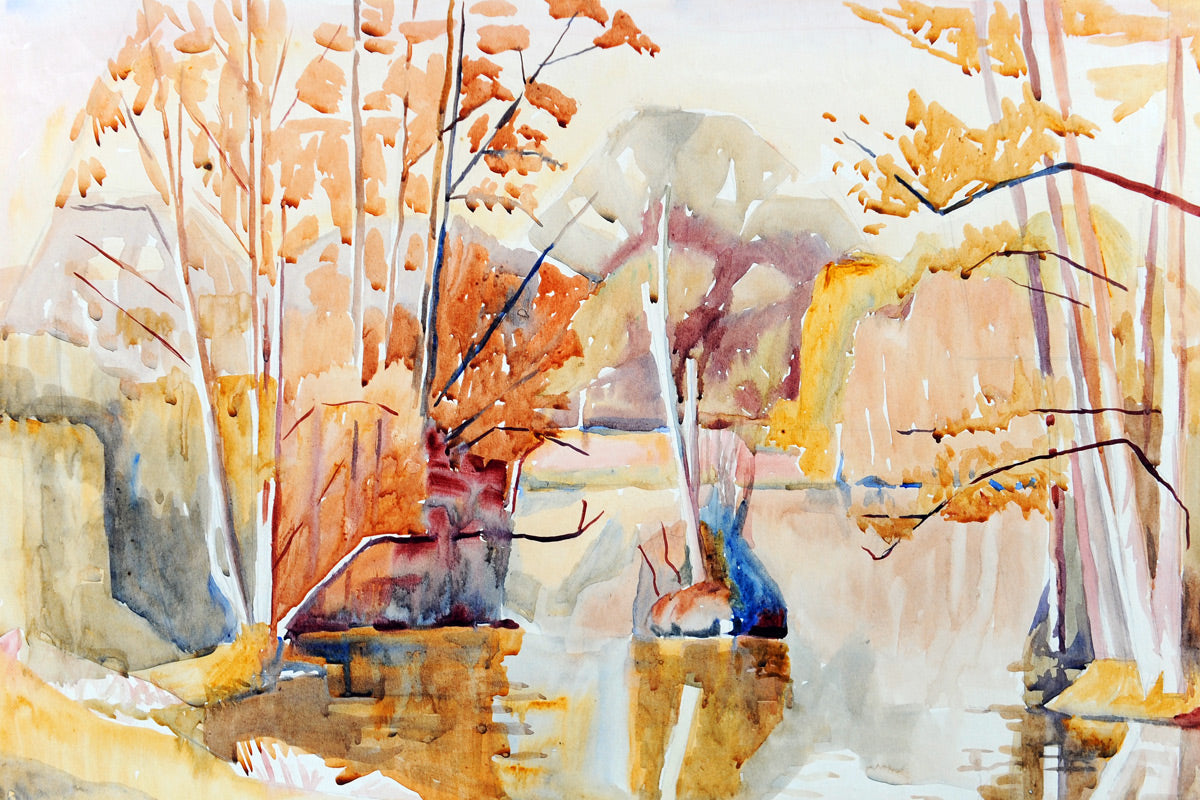 'Autumn Lake' - bold oranges, rusts and golden yellows perfectly capture the shades of Autumn's change
'Autumn Lake' - bold oranges, rusts and golden yellows perfectly capture the shades of Autumn's change
With the huge rising popularity of artists previously dismissed as 'illustrative' - the likes of Edward Bawden and Eric Ravilious - the Grosvenor artists and their legacy are now seeing a surge in interest and a deserved reappraisal. These watercolour collaborations demonstrate what was achieved by such artists at the height of their powers.
